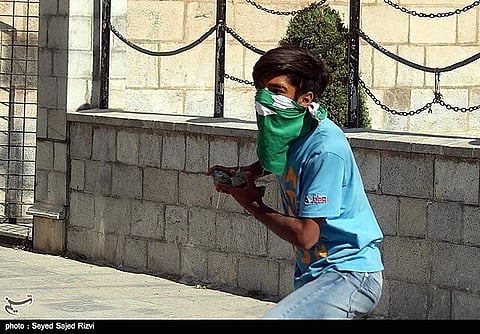

The State Investigation Agency (SIA) of the Indian government raided the office of the historic Kashmir Times newspaper in Jammu on Thursday, escalating a campaign against media outlets accused of "aiding separatist narratives" . Officials stated the raid was part of an investigation into a criminal case alleging the publication engaged in a "criminal conspiracy with secessionist and other anti-national entities" and promoted "terrorist and secessionist ideology" . During the search, which lasted several hours and was conducted in the presence of a magistrate, authorities reported seizing documents, digital devices, and other materials .
In a powerful joint response, the newspaper's editors, Prabodh Jamwal and Anuradha Bhasin, categorically rejected the allegations as "bizarre" and "baseless," asserting that the raid was a targeted attempt to intimidate and ultimately silence one of the region's few remaining independent voices . They emphasized that the Jammu office had been shut for years and that the accusations were designed to delegitimize their work . "Criticising govt is not the same as being inimical to the state," they wrote, defending their role in holding power to account and amplifying marginalized voices as essential to a healthy democracy . The editors also recalled the relentless targeting the outlet has faced, including the unexplained sealing of its Srinagar office in 2020, which led to the suspension of its print edition .
The raid was swiftly condemned by Pakistani leadership and international press freedom organizations. The Prime Minister of Azad Jammu and Kashmir, Faisal Mumtaz Rathore, issued a statement condemning India's attempts to silence every voice in the occupied territory that seeks to highlight its "crimes against humanity" . He stated that the Kashmir Times had long supported the Kashmiris' UN-recognised right to self-determination and consistently exposed grave human rights violations . Meanwhile, the Committee to Protect Journalists (CPJ) termed the raid "deeply troubling" and called on authorities to clearly explain the legal basis for their actions and ensure that journalists are not threatened with criminal charges simply for doing their work . Local press clubs in Muzaffarabad also expressed solidarity, stating that India has launched a "systematic campaign" to stifle independent journalism .
This incident is not isolated but fits a broader pattern of declining press freedom in India, particularly in Jammu and Kashmir. Since the Modi government came to power in 2014, the space for independent journalism has shrunk dramatically . India's position on the World Press Freedom Index has fallen, ranking 159th out of 180 countries in 2024, a crisis attributed to violence against journalists, highly concentrated media ownership, and strong political alignment in the media landscape . Reports document that journalists critical of the government, especially those covering sensitive topics like Kashmir, routinely face online harassment, intimidation, physical attacks, and arbitrary arrests . This environment of pressure and influence has called India's model of a pluralist press into question .